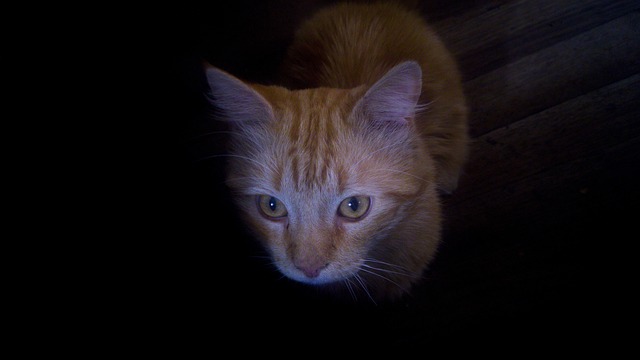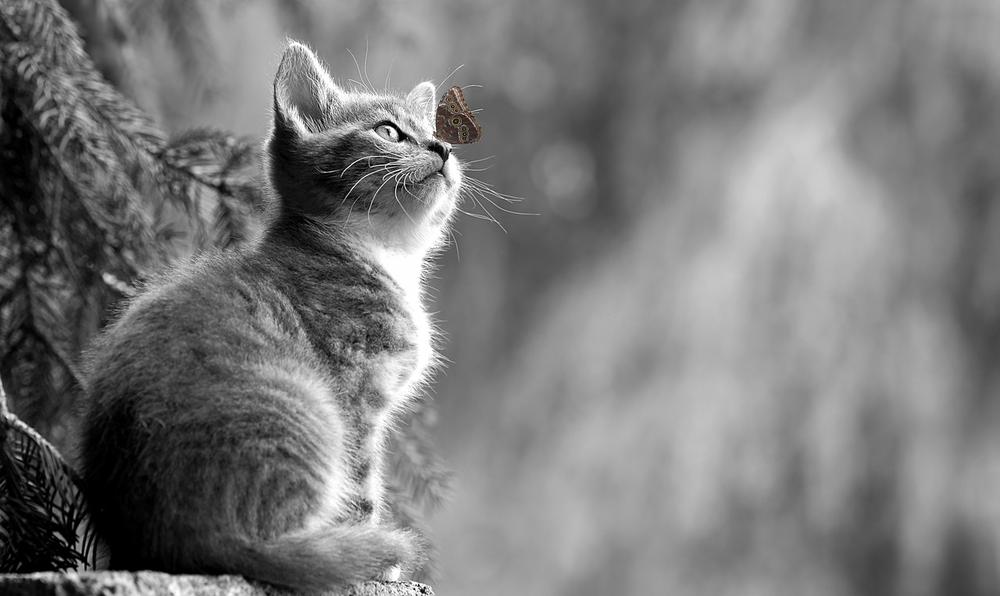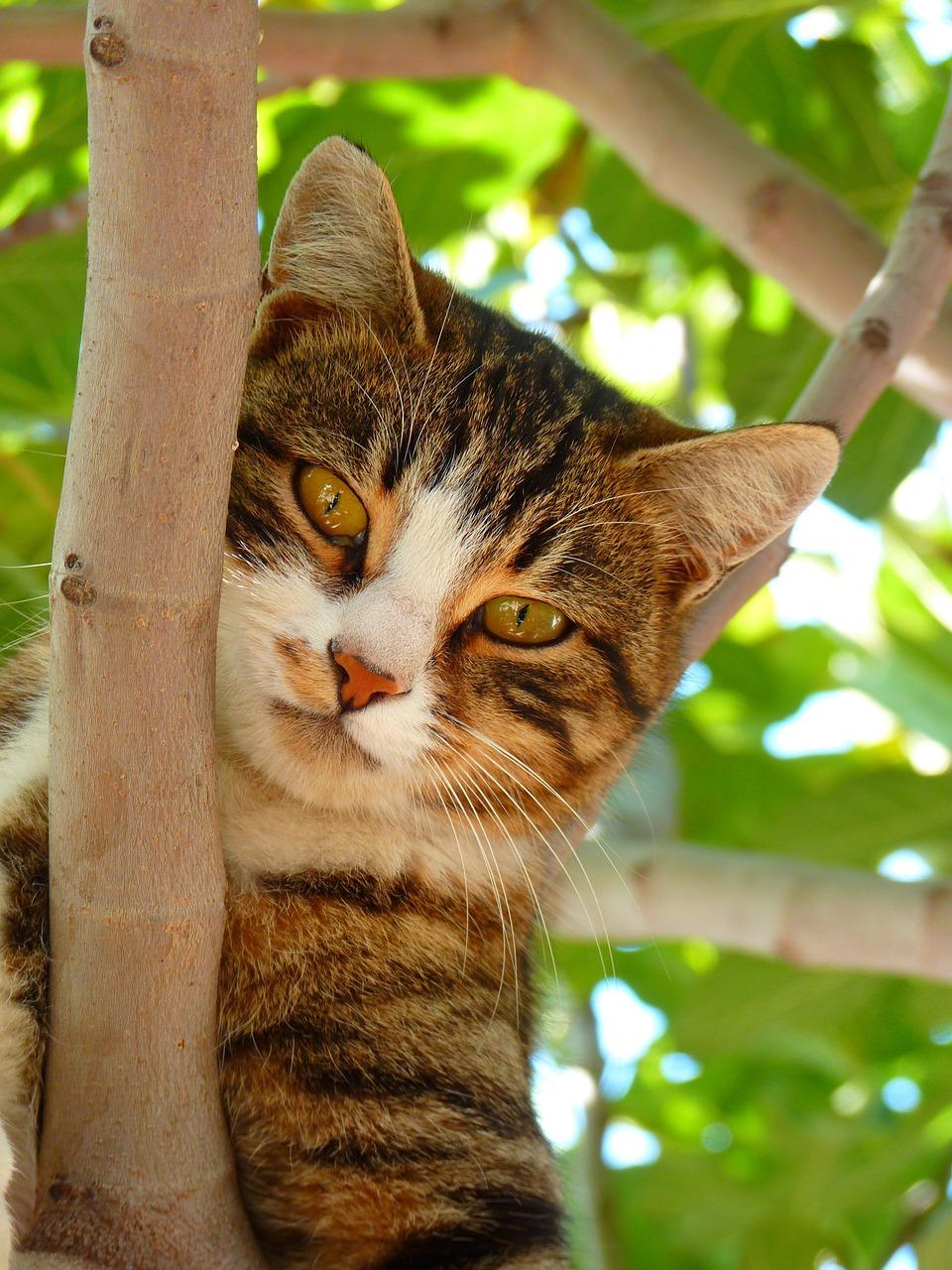Are Cats Scared of the Dark? (Don't They Have Night Vision?)

Curiosity piqued?
Wonder if cats tremble in darkness? 😺
You're not alone, my friend.
Thoughts racing, mind straining, seekin' answers, ye venture here.
Fear not, for we embark on this enlightenin' quest together...
Let's dive in.
What Are the Signs of a Cat Afraid of the Dark?
If you think your cat is afraid of the dark, here's what to look for:
- Bumping into stuff when it's dark.
- Letting out scary screams.
- Big pupils and faster heartbeat.
- Hiding or finding a safe place.
- Shaking and grooming like crazy.
- Making intense cries at night.
- Eyes all wide and open.
- Sweaty paws from being nervous.
- Feeling confused and uneasy.
- Connecting darkness with bad stuff.
Cats might feel scared in the dark because they're in a new place, there are mean dogs around, or loud noises startle them.

Past bad experiences or even vision problems could make their fear worse.
The cat's personality and past also matter - some want pitch-black darkness while others need a bit of light to feel secure.
Kittens might be scared of the dark because it's strange or they feel ignored by their owners. If you see any of these signs, try using a gentle nightlight or talk to a vet about your cat's fear of the dark. 😺
Main points I'll expand upon further down this article:
- Cats have exceptional night vision and rely on their senses.
- Cats can see well in low amounts of light but not in absolute darkness.
- Cats have eyes adapted for seeing in low-light conditions.
- Cats have unique eye features that maximize available light.
- Poor eyesight can affect a cat's ability to see in the dark.
- Cats are nocturnal predators most active during crepuscular hours.
- Cats can experience fear triggered by new surroundings or loud noises.
- It's important to create a safe environment for cats at night.
- Leaving a dim light on can help alleviate a cat's fear.
- Roaming outside at night is not recommended for cats.
Can Cats See in the Dark?
Cats have exceptional night vision due to their ability to pick up on faint light sources and their large slit pupils that quickly adjust to changes in light levels. They also have a reflective layer called the tapetum, acting like a mirror to maximize their vision in low-light conditions.
Cats have incredible night vision, did you know that?
Their eyes are designed for low-light conditions, allowing them to see things in the dark that you and I wouldn't even notice.
It's like they have superpowers!
Unlike dogs, cats have evolved to be experts at seeing in the dark.
With more rods than cones in their eyes, cats can pick up on even the faintest light sources, giving them a clear view of their surroundings.
Impressive, right?
But wait, there's more.
In the dark, cats' pupils dilate dramatically, allowing more light to enter their eyes and maximizing their ability to see clearly.
And here's another cool feature:
Cats have large slit pupils that adjust quickly to changes in light levels. So whether it's bright or pitch black, they can effectively adapt.

Now, get this little tidbit.
Cats have a reflective layer at the back of their eyes called the tapetum, which acts like a mirror and helps bounce any available light back out through the retina.
It's like they have a built-in flashlight!
While cats aren't exactly superheroes with night vision goggles, their abilities far surpass ours. They may not be able to see in absolute darkness, but their capability to navigate and perceive their surroundings in low-light conditions is remarkable.
Even young kittens as young as five weeks old can do it easily.
Of course, you have to note that cats with poor eyesight or eye abnormalities might struggle with their night vision.
So remember, the next time you're wondering if cats can see in the dark, they have some pretty amazing adaptations that make them excellent nocturnal navigators.
Now, who's up for a game of hide and seek in the dark?
And here's a surprising fact...
While cats excel in low-light conditions, does that mean they're scared of the dark?
What about their natural instincts as nocturnal predators?
Let's explore more about cats and their fascinating behaviors in different environments:
Understanding a Cat's Natural Instincts
Cats possess intriguing natural instincts, making them captivating creatures.
Crepuscular by nature, they exhibit their prowess as nocturnal hunters, preferring the mysterious hours of dawn and dusk to prowl and explore.
Stress can play a significant role in a cat's life, leading them to sweat through their paw pads and triggering fear when encountering new environments, confrontational dogs, other pets, or even loud sounds.
It is vital for you to remember that cats do not necessarily seek total darkness; instead, they thrive in the soft glow of dimly lit mornings and nights.
Helping Cats Overcome Their Fear of the Dark
Gradual exposure to darkness can help cats overcome their fear
If your furry friend is scared of the dark, you can gradually get them used to it.
Start by turning off the lights for short periods during the day and make the time longer little by little. This way, they won't feel overwhelmed by the darkness.
Avoid leaving cats alone in the dark
Leaving your cat alone in the dark can actually make their fear worse.
So, try to avoid that.
Keep some light on to keep them reassured and prevent them from feeling anxious or lonely.
Comforting techniques for frightened cats
When your cat is scared, stay calm and soothing around them.
Use your voice to comfort them and offer distractions like toys or treats. Create a special area for them with their favorite blanket or bed in your bedroom, so they feel safe and secure.
Cats associate light with human presence, so complete darkness can make them even more anxious.
Consider keeping a night light on for them, especially if they have eye conditions or seem particularly fearful.
A little light can make them feel better.
To ensure your cat feels safe, keep a soft light on while they sleep, provide hiding spots where they can feel secure, play with them before bedtime to release energy, and leave a dim light on at night for extra reassurance.
If your cat keeps feeling afraid or anxious at night, it could be helpful to see a veterinarian.
They can check if there are any health issues contributing to their behavior.
Chronic stress in cats can cause serious health problems, so you must address any signs of fear or unusual behavior.
Also, consider using Feliway pheromone diffusers and be patient and understanding as you help your cat overcome their fears.
It will greatly improve both their quality of life and yours too.
I highly recommend checking out my article on why your cat may be hiding in the closet.
In it, I delve into the reasons behind this behavior and provide guidance on how to address it.
You don't want to miss out on this valuable insight! Why Is My Cat Hiding in the Closet.
Tips for Creating a Cat-Friendly Environment at Night

To make sure your cat feels safe and cozy at night, here's what you can do:
- Put up lights that turn on when there's movement outside. This way, your cat can see without disrupting their sleep hormone.
- Try using night lights with motion sensors inside your house. It'll help them see in the dark and feel less scared.
- Make some comfy sleeping spots with soft blankets or cozy beds in dimly lit areas.
- Use calming scents like lavender or chamomile to help your cat relax and sleep peacefully.
- Set a routine by playing with them before bedtime and giving them a light snack. This will encourage them to wind down.
- Keep windows shut and curtains closed tight, so your cat doesn't try risky adventures outside at night.
By adhering to these suggestions, you will establish an evening atmosphere that provides your four-legged companion with ease, security, and an optimal rest.
And that wraps up today's article.
Before you leave, can I ask you something? Did you find my blog post helpful? If it was, I would be really grateful if you could share it with your loved ones and friends. Just use any of the social media sharing buttons to easily spread the word. Thank you so much!
Talk soon,
-Sarah Davis